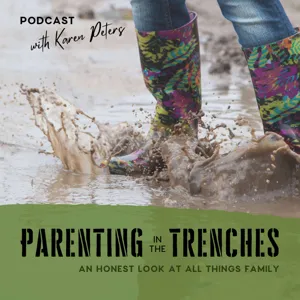Jodi’s Birth Stories part 2

Content Warning: Intrusive thoughts, anxiety and challenges with nursing.
Hello and welcome to Perinatal Wellbeing episode #6 today is part 2 of my conversation with Dr. Jodi Pawluski. Jodi is a researcher, neuroscientist, therapist, podcaster, and parent! Jodi is from Canada and currently lives in France with her partner and 2 kids. Jodi researches the Parental brain and you can learn all about it on her website and on her podcast, Mommy Brain Revisited. Jodi is also a perinatal mental health therapist. In this episode, Jodi shares her story of her delivery with her 2nd child and her experience with nursing him, in a different country than her first. We also talk about the neuroscience of anxiety and the biology of nursing. And because we had so much to talk about you get to hear Jodi’s story in 2 parts! Please see last week’s show for part 1.
You can find Jodi at https://www.jodipawluski.com and her podcast Mommy Brain Revisited is on most major platforms.
Support the show










